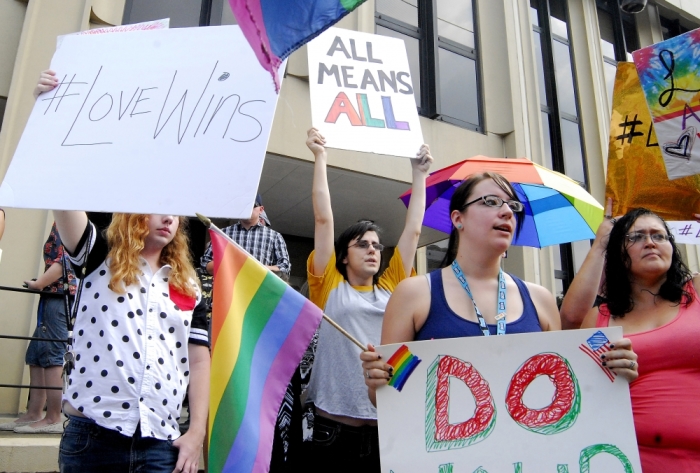Kentucky Clerk Kim Davis and 'A Christian Manifesto'

In his book, A Christian Manifesto, Francis Schaeffer says, "It is not only that true spirituality covers all of life, but that it covers all parts of the spectrum of life equally. In this sense, there is nothing concerning reality that is not spiritual."
Thus, a person does not leave his faith in the pew of her church when she exits its doors; rather, she takes her faith into her home life, her work life, and everything she does in between. This means that if she is a Christian doctor, she may refuse to perform elective abortions, if she is a Christian pharmacist, she may refuse to prescribe abortion-inducing drugs, if she is a Christian county clerk, she may refuse to issue same-sex marriage licenses, and so on.
Kentucky Governor Beshear recently went on record regarding his understanding of faith when he told Kentucky county clerks, "Neither your oath nor the Supreme Court dictates what you must believe. But as elected officials, they do prescribe how we must act."
Bureaucrats insist people may believe what they wish, but they may not act in accordance with those beliefs. In other words, faith becomes irrelevant to everything but one's personal devotion.
America's Framers, however, said something different. The First Amendment says, "Congress shall make no law respecting an establishment of religion, or prohibiting the free exercise thereof." The Framers believed that not only should Americans be entitled to their beliefs, but they should also be free to live in accordance with those beliefs. The vast majority of Americans today agree.
In fact, a recent poll indicated that Americans choose religious freedom and liberty over gay rights by a margin of 4 to 1.
Still, some argue a person's right to free exercise ends when one is elected to public office. Yet shouldn't people who are accountable to the public, as public servants, have greater protections so they can fulfill their duties without violating their consciences?
If the people of Rowan County wanted a liberal secularist, they had the opportunity to elect one, and they will have the opportunity to replace Kentucky County Clerk Kim Davis, should they choose to do so in the next election. In the meantime, the courts, as a part of government, are bound by the Constitution and owe Clerk Davis her First Amendment rights.
Asking for an accommodation for Mrs. Davis imposes no burden on anyone. It merely respects her constitutional right to exercise her First Amendment freedom.
Some have argued Davis is not entitled to stand for her beliefs because before she became a believer, her conduct showed a lack of respect the sanctity of marriage (she had been divorced three times). This idea is neither biblical nor constitutional. The Christian faith is predicated on forgiveness, particularly when the sin preceded faith. Moreover, a person's constitutional rights may not be withheld because of past personal failures.
Nevertheless, clerks, judges, and magistrates are being told to resign or face contempt charges and jail time, and businesses are being forced to close or pay fines and penalties, all for simply being unwilling to violate their consciences and religious beliefs. Believers do not give up their freedoms when they take public office or become wedding vendors. If believers do not take a stand for those freedoms, they will soon be pariahs for their faith, in a land founded by people seeking religious freedom.
Schaeffer urges, "We must understand that there is going to be a battle every step of the way. They are determined that what they have gained will not be rolled back. But it is our task to use the open window to try to change that direction at this very late hour. And we must optimistically press on, hoping, praying, and working."
While the state may argue a county clerk does not have the authority to deny marriage licenses, Davis knows that she does not have the authority to grant them. A Christian Manifesto says, "God has ordained the state as a delegated authority; it is not autonomous. The state is to be an agent of justice, to restrain evil by punishing the wrongdoer, and to protect the good in society." Court-created same-sex marriage has done the reverse and, in effect, established a reverse-religious–test that requires believers to abandon their beliefs or be barred from public office.
Reverse-religious-tests are antithetical to the foundational principles undergirding the Constitution and religious freedom, worldwide.
The admonitions and warnings of secularists and elected leaders underscore Schaeffer's admonition, one followed faithfully by our nation's Founders and generations thereafter: "One either confesses that God is the final authority, or one confesses that Caesar is Lord." There is no middle ground.



























